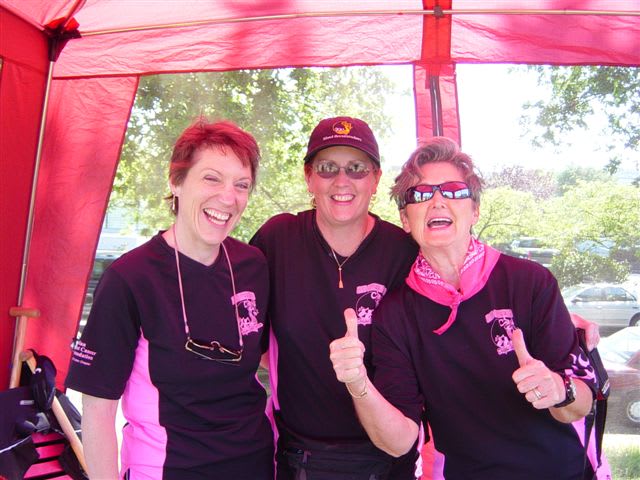Why we need to enhance quality of life for cancer patients in BC
September 13, 2018
Found in General
Hello,
My name is Pippa Hawley and I’m the medical director of the provincial pain and symptom management/palliative care program at BC Cancer, where I’ve been since 1997. I’m looking forward to connecting with you more over the coming weeks on the importance of raising the quality of life for those facing cancer.
It’s an often overlooked need in the grand landscape of cancer research, but one we’re committed to addressing through our program at BC Cancer. Some of our more recent research has focused on exploring cannabis as an effective pain management tool for cancer, further bolstered by its impending legalization in Canada.
But first, I’d like to take the time to introduce myself and explain why we need to enhance care in this area.
My journey to medicine and BC Cancer
Growing up in Britain I was very passionate about the arts. At the same time, I didn’t want to spoil it for myself and my retirement by turning that passion into a profession. I had a number of excellent science teachers throughout school that I enjoyed learning from, and I was always a good problem-solver, so I decided to embark on a career in the sciences, going on to graduate from medical school in Southampton in 1985.
After a year of internship I left for New Zealand, where I trained in Internal Medicine for five years, and then came to Canada for a year to work in clinical trials for HIV/AIDS. I had hoped to become a specialist in the field in New Zealand, but family issues kept us in Canada, where we settled and I had to repeat my residency program in order to satisfy the Canadian regulators. A glutton for punishment, I then did a 2-year fellowship which included extra training in Palliative Medicine, both in BC and in Bristol, England.
After I completed that I started the pain and symptom management/palliativecare clinic at BC Cancer, and ever since I’ve been committed to enhancing the quality of life for cancer patients.
What I love about what I do
Working in pain management and palliative care, I frequently deal with patients who have been forced to face their own mortality. They often have a tremendous sense of perspective about living as well as possible. I’ve learned a great deal from them throughout my career, for which I am grateful.
One of the biggest takeaways is how important it is to set priorities for your life. Not one person I’ve treated has looked back and thought they should have worked more or showed up earlier to the office when they did; it’s always that they’d wished for more time with a loved one or long lost friend. This is something I have taken to heart and tried to apply in my own life.
One of the things I love most about my work is the difference we can make in lives of these patients and their families. Sometimes I think patients don’t see it as a big deal when they write letters of thanks or provide positive feedback to their health care providers, but hearing about how you’ve made them more comfortable, in any way, shape or form, is incredibly rewarding.
Raising the standard of care for cancer patients
I believe pain and symptom management and palliative care is an integral part of how we need to think of cancer care moving forward.
We’ve made enormous strides in the actual management of the disease, but at the end of the day the cure rate hasn’t changed as much as we would all like. What we’ve achieved is helping many people live a lot longer with their disease, but people are still living with the possibility of dying from it for a long time. That comes with an enormous number of stresses, and to neglect the impact that has on people’s lives is a huge missed opportunity.
For example, just because someone is responding to their chemo doesn’t mean they’re not experience side-effects associated with other aspects of the disease or that they will go on to be cancer-free. There is often high likelihood that they will go on to die from the disease – it’s just a matter of when. Many people underestimate how stressful this can be for the patient: the not knowing when. It leaves them in an awful and indeterminate state of limbo and makes it impossible for them to plan their lives.
An integrated approach to disease-directed and integrated palliative care that includes pain and symptom management is needed and will go a long way in improving quality of life. Next week, I will discuss how we are working toward this integrated approach and how cannabis can play a small role.
Thank you for tuning in,
Pippa


